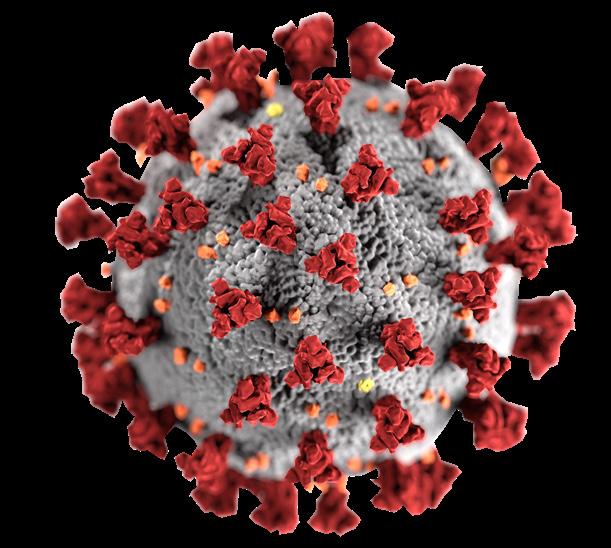4
11 SEPT 2020 | EXEPOSÉ
NEWS
University spending £467 a month on “hospitality biscuits” Pete Syme Deputy Editor
A
FREEDOM of Information request has revealed that the University of Exeter spent £4,205 on “hospitality biscuits” for events in the period from July 2019 to March 2020. Sir Steve Smith, Vice Chancellor 2002-2020, had been the subject of many biscuit-related memes after a
2016 Exeposé investigation found that almost £6,000 had been spent on the confectionery across a 12-month period. Whilst it would appear that the expenditure has since been reduced significantly, the monthly average has only fallen from £482 to £467. A wider period of comparison was unavailable since the University does not currently hold any data prior to July of last year. Whilst the precise number is not
recorded, with a pack of McVitie’s Chocolate Digestives costing £1.60, this would suggest an output of roughly 300 packs a month, or 4,672 biscuits. Across a nine-month period, this totals over 42,000.
With Tesco selling a variety pack of 70 for £1, the total amount could be as much as 294,000.
Alternatively, with Tesco selling a variety pack of 70 for £1, the total amount of biscuits could be as much as 294,000. A spokesperson from the University of Exeter said: "The University hold and hosts thousands of meetings, events and functions - involving staff, students and visitors - across all of its campus every year. Occasionally, and where appropriate, some small offer of light refreshments may be provided."
Image: Aghilms, pixabay
“This remote working world is new for all of us” An interview with Linda Peka Georgia Shepherd & Bryony Gooch
Lifestyle Editor and Editor
A
HEAD of what is predicted to be an unpredictable year, Exeposé spoke to Deputy Registrar and Chief College Operations Officer Linda Peka on what to expect for the coming year.
É
É: How does the University plan on catering to the vast array of teaching methods that students experience, so all students get regular face-toface teaching time? There’s been a lot of thought put into design principles, and these principles have equality, diversity and inclusion considerations. Project Enhance is a blended delivery model, for what is a very uncertain year. We know where we are with COVID at the moment, so we can provide for high quality on campus delivery. But risk levels could go different ways, hence our enhanced and blended model so we can adapt. Our planned live face-to-face will be available online, so students around the world are able to access it. There will be recordings available, so there’s an opportunity to make sure that each individual department can adapt. Each course will offer a mix of live teaching both on campus and online, digital resources such as videos, podcasts and interactive content, personal teaching support plus engagement with fellow students from around the world. We call this a blended learning approach which will enhance our educational provision. É: Will the University be more lenient to students handing in work on the basis that everything is remote and not all students will have access to strong, working Wi-Fi? Where we have come across the odd issue so far, the education teams have been really flexible and supportive. I’m
not sure precisely how it works as that’s not my area, but we fully understand the difficulties that students are faced with, this remote working world is new for all of us.
We fully understand the difficulties that students are faced with.
Additionally, temporary changes were made to our mitigation policy during the 2019/20 academic year in order to help students to better manage the disruption from COVID-19. One change was to not ask students for evidence to support mitigation applications. It has been decided to continue this in Term One for 2020/21, with the provision that this is reviewed in December 2020 to ascertain whether the further extension of this approach is justified. This will depend on the progress of the pandemic and the impact on the student experience. Students will also be able to withdraw mitigation requests up to three days after examinations, that is, if they think they were actually able to perform to the best of their ability. É: How is the University investing in wellbeing services in preparation for a year that some might predict to be volatile and isolating? So last year the University and Students’ Guild did a full wellbeing review, using our NHS partners, that led to an investment of a further million pounds in wellbeing A number of posts have been agreed to, including posts with a specific remit to deliver talking therapies. We are also investing additional resources in helping distressed students in crisis. We are prioritising support for students out-of-hours and are currently recruiting for four new outof-hours welfare consultants and three new residence consultants. This
will enhance the halls experience and ensure professional support is available out-of-hours. In the autumn we are recruiting a further psychological therapies position, a mental health advisor and a further education support advisor. But these are challenging financial times, although the University has been under careful financial stewardship and all of the investment in wellbeing is secure.
One of my reflections on COVID-19 is “boy, oh boy, does it exploit inequalities.”
One of the first steps we took was to ensure that our wellbeing will work in a remote way, and it’s one of the examples of our good practice. All of that is solid. And we hope in the Autumn Term to be offering some face-to-face sessions. É: Furthermore, with this move online, how does Equality Diversity Inclusivity (EDI) aim to mitigate against cyber harassment and cyber crime online? A subject very dear to my heart, I have to say. We have been working on this agenda for a very long time, and one of the reflections I think about when I think about COVID now is “boy, oh boy, does it exploit inequalities.” It’s really the most pernicious sort of disease in that respect. So where there were inequalities anyway, COVID exacerbates them and hones in on them. So the EDI team has been working very closely on the new guidance on online learning, online harms, good practice online in terms of your social media presence etc… But it is a problem, I really think it’s a problem, and maybe, you know, maybe it’s my generation. But just the instant nature of this is quite staggering to me and
how we can plough in and you know make things so much worse. So in answer to your question we are working with the Guild and Students’ Union, we have got some further guidance, the EDI team are all over it. We have got a report and support tool which is also now rolling out to our colleagues on the Penryn site… We now have one single report tool where people can report in and tell us where they are experiencing harassment. And there are specific questions around online. I think it’s going into our second or third year of operating this tool, and it’s becoming really useful to hone in on where some of those problems are and put those interventions in place. É: Will more action be taken to provide consequence to those perpetrating these actions? Typically in the past where people have had these issues, perpetrators have not received any consequence. Will there be a way of providing victims with resolution? I think this has been quite difficult. For example some of this really bad behaviour online has come via anonymous online platforms, of which some have been hosted overseas. They have been certainly beyond the University’s reach and even the police’s reach. And I think that has
added to that sense that we have not always been able to get to the perpetrators, and we have not always been able to make that count in terms of consequences.
We are learning all the time about how we can look after people and make sure there are consequences
However, I am really heartened by our approach here. We saw some very bad behaviour online recently from some of our students relating to racism. That came through our complaints process and that’s been dealt with through our students’ cases process thoroughly, quickly and effectively. So we are learning all the time, in this environment about how we can look after people and most importantly make sure there are consequences. You are right. We haven’t always been able to get at it, but you have got the assurance that when we can we are.
Image: University of Exeter




